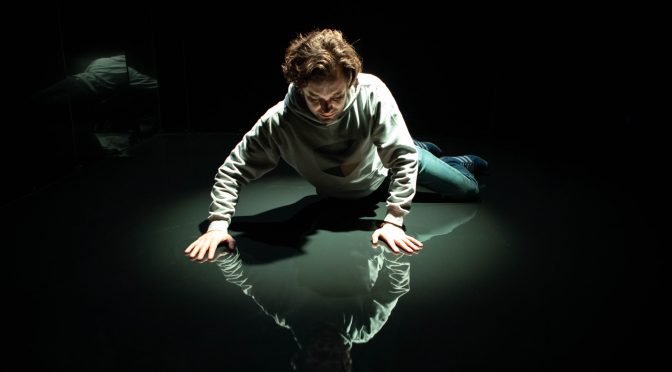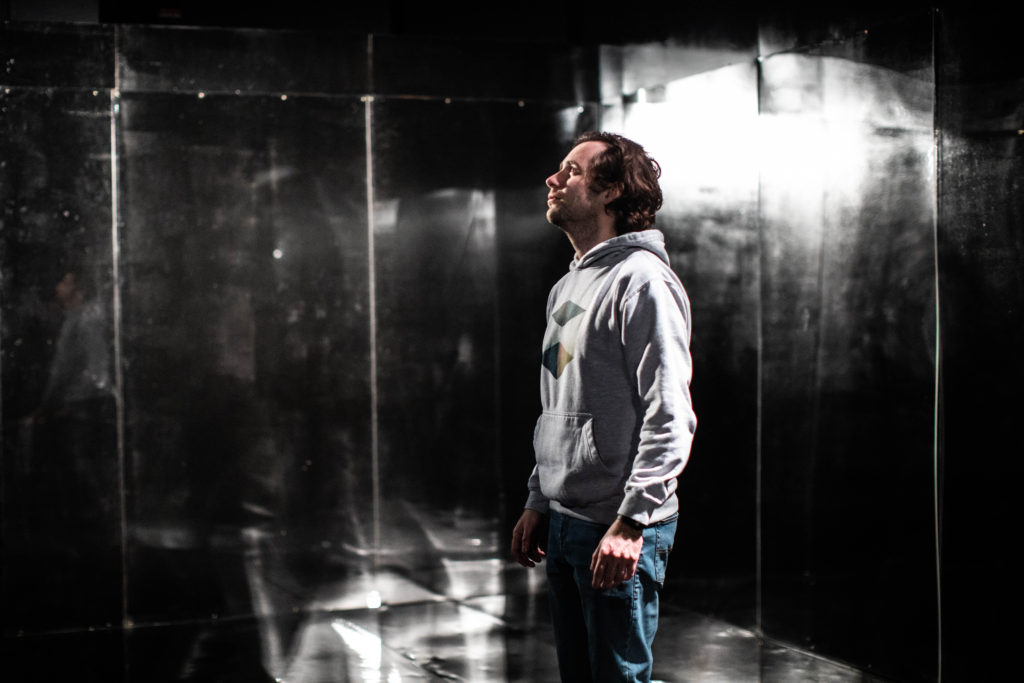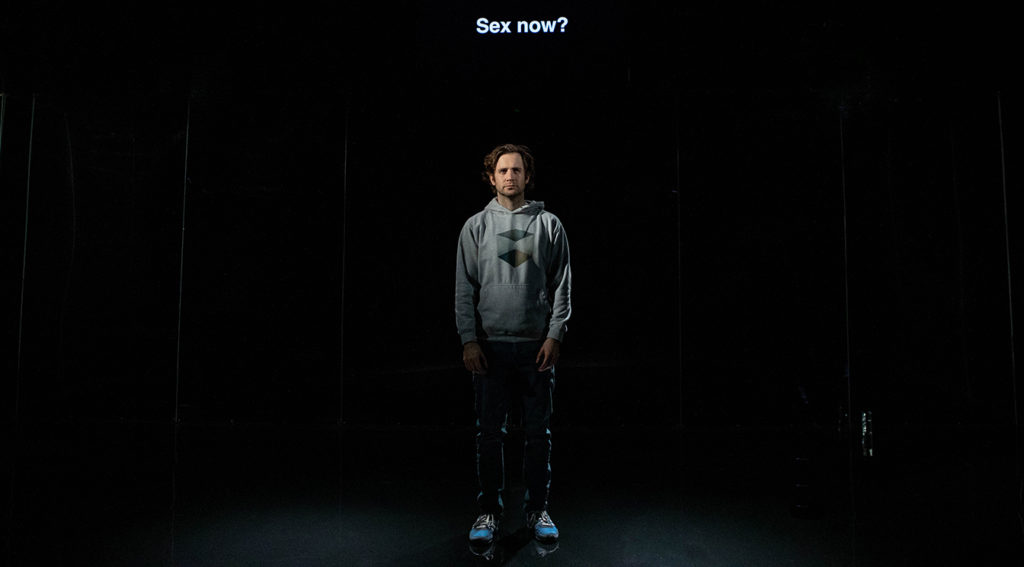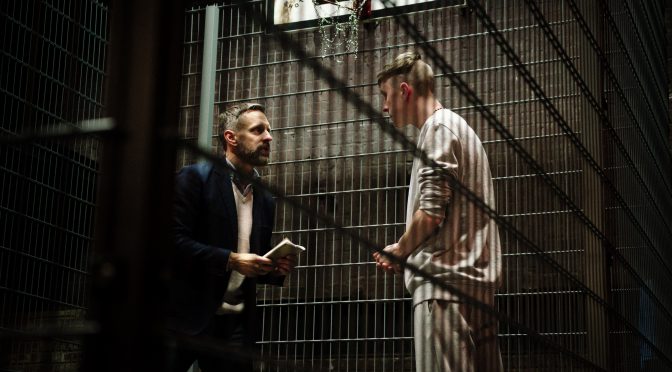Sergio Blanco’s play is a challenge. There’s the subject matter – assisted suicide and necrophilia – alongside the technique of ‘autofiction’. Plenty of people have little time for any of this, but ‘death and desire’ are the building blocks of theatre. Being proudly, even defiantly, contrary earns the play and the production respect.
Several levels of narration are constructed, though Blanco would prefer the term ‘engineered’ (we know this… because he tells us). The actors present themselves as their own ghosts. One also takes the part of a writer called Sergio. They work through the script with the air of a rehearsal, commenting as they go. Theatricality is exposed and played with, and everyone acknowledges we can’t trust anything that’s going on. In fact, they make quite a big deal about that.
It is all very funny. Securing the humour is to the credit of Blanco’s translator and director Daniel Goldman, whose work is commendable. Creating an air of spontaneity, with plenty of silly touches, yet admitting how contrived the whole thing is, makes for quite the juggling act. As with the writing, the direction has rigour but also a lightness. That’s a tough call with a backdrop of big – and distasteful – questions. When should you be allowed to take your own life? And can you really say what happens to your body afterwards? Have you guessed ‘the ick’ yet?
None of this can be easy for the performers, who all do a superb job. Al Nedjari takes the lead, performing as the ‘ghost of Al’ and ‘Sergio’. He pretends to direct the action with lots of expert audience engagement. Danny Scheinmann plays a doctor in a Swiss clinic who reads out ‘case studies’ of necrophilia and never questions Sergio’s wish to end his life (nobody mentions illness). Charlie MacGechan takes the role of Khalid, a necrophiliac (imprisoned, conveniently, next to a graveyard) who agrees to – wait for it – have sex with Sergio’s corpse. The performances veer between relaxed and taut, suggesting comedy and trauma; they are always riveting.
There are intimations the play will become darker. Because it’s not just the subject matter that is unsettling – our grip on reality, truth and lies is questioned incessantly. As the stories develop, they become more serious, politics is introduced, we hear a lot about the loss of loved ones. The cast have deeply emotive scenes. But a sense of freedom, even fun, is fought for. It returns in an odd epilogue that sums up the mind-boggling yet memorable nature of the whole show.
The script is crammed with references, including to Blanco’s own work (which could easily try the patience). Mary Shelley’s Frankenstein starts to dominate. Suggesting this is the key would be dangerous. But maybe the play, like the monster, is made up of many elements? Which makes Blanco… Frankenstein? Yet Nedjari takes pains to make his character endearing, even romantic, and, in the end, very moving. Is it Sergio’s unexplained death wish or hubris that brings a tear to the eye? The play shows a misguided omnipotence – it is only the world Sergio creates that he can control, and even that power is an open question.
Until 2 March 2024
Photo by Alex Brenner





